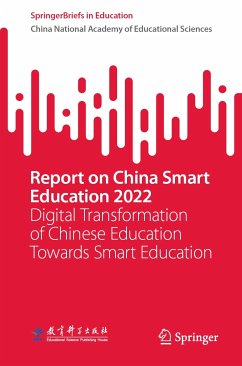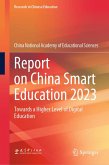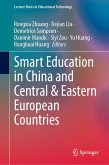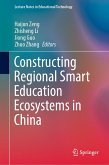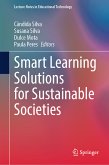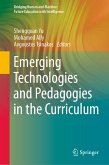This book aims to reflect the digital transformation of Chinese education toward smart education comprehensively and accurately. It is the first systematic summary of the progress of smart education in China. The book believes that smart education is a new education form in the digital era and is essentially distinct from education forms in the industrial era. This new education form is innovative in five dimensions.
First is the new core concept. Smart education is not only a concrete action concerning people's well-being, but also a vital strategy concerning national plans. Through technology empowerment and data drive, it empowers educational reform in all aspects, systematically constructs a new relationship between education and society, provides suitable education for each learner, and makes the aptitude-based teaching that we have been dreaming of for thousands of years a reality. For the first time in history, smart education helps to reach the full alignment between individual development and societal development.
Second is the new system structure. Smart education will break through the boundaries of school education, drive the diversified combination of various education types, resources, and elements, promote the collaboration of school, family, and society in education, and build a high-quality, individualized lifelong learning system that is available for anyone anywhere anytime.
Third is the new teaching paradigm. Smart education will integrate physical, social, and digital spaces to create new learning scenarios and promote human-technology integration, and cultivate cross-grade, cross-class, and cross-discipline learning communities across time and space to organically combine large-scale education with individualized cultivation.
Fourth is the new educational content. Smart education will focus on developing all-round education, establishing digital knowledge graphs based on systematic logics of knowledge points, and innovating content presentation methods to make learning a wonderful experience and help learners develop higher-order thinking skills, comprehensive innovation capability, and lifelong learning ability.
Fifth is the new education governance. With data governance at the core and digital intelligence technology as the driver, smart education will boost the holistic reengineering of education administration and business processes and enhance the modernization of the education governance system and governance capacity.
This book is intended for teachers, education administrators, education policymakers, education researchers, and parents concerned about education innovation and development, as well as people from all walks of life who have aspirations for the education industry. It can also serve as a reference for international organizations and education research institutions of all countries to promote the joint exploration of the development path of smart education and create a better future for the world's mutual development through educational reform.
First is the new core concept. Smart education is not only a concrete action concerning people's well-being, but also a vital strategy concerning national plans. Through technology empowerment and data drive, it empowers educational reform in all aspects, systematically constructs a new relationship between education and society, provides suitable education for each learner, and makes the aptitude-based teaching that we have been dreaming of for thousands of years a reality. For the first time in history, smart education helps to reach the full alignment between individual development and societal development.
Second is the new system structure. Smart education will break through the boundaries of school education, drive the diversified combination of various education types, resources, and elements, promote the collaboration of school, family, and society in education, and build a high-quality, individualized lifelong learning system that is available for anyone anywhere anytime.
Third is the new teaching paradigm. Smart education will integrate physical, social, and digital spaces to create new learning scenarios and promote human-technology integration, and cultivate cross-grade, cross-class, and cross-discipline learning communities across time and space to organically combine large-scale education with individualized cultivation.
Fourth is the new educational content. Smart education will focus on developing all-round education, establishing digital knowledge graphs based on systematic logics of knowledge points, and innovating content presentation methods to make learning a wonderful experience and help learners develop higher-order thinking skills, comprehensive innovation capability, and lifelong learning ability.
Fifth is the new education governance. With data governance at the core and digital intelligence technology as the driver, smart education will boost the holistic reengineering of education administration and business processes and enhance the modernization of the education governance system and governance capacity.
This book is intended for teachers, education administrators, education policymakers, education researchers, and parents concerned about education innovation and development, as well as people from all walks of life who have aspirations for the education industry. It can also serve as a reference for international organizations and education research institutions of all countries to promote the joint exploration of the development path of smart education and create a better future for the world's mutual development through educational reform.
Dieser Download kann aus rechtlichen Gründen nur mit Rechnungsadresse in A, B, BG, CY, CZ, D, DK, EW, E, FIN, F, GR, HR, H, IRL, I, LT, L, LR, M, NL, PL, P, R, S, SLO, SK ausgeliefert werden.

